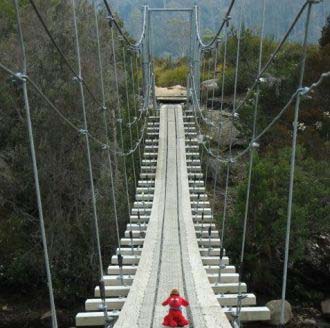What Helps Depression During Major Life Transitions? 1

Do we really know what helps depression during major life transitions? The surprising answer is yes. It has a lot to do with giving attention to what the particular depression may be trying to tell us.
It may seem surprising to many to think of depression as even occurring at the time of major life transitions. But, in fact, major life transitions often have a lot to do with its onset and, also with what helps depressed states.
What are Major Life Transitions?
A major life transition, simply put, is any event or series of events that substantially and durably changes a person’s subjective experience of his or her life. It is any of those experiences in life that entail moving from one way of life or means of life to another. Examples include, but aren’t confined to:
- job loss or change of job (or these days, fundamental changes in the nature of a job);
- marriage; divorce or marital breakdown;
- migration to a new country, or, in a huge country like Canada, migration from one region to another;
- midlife transition, which is often caricatured as “mid-life crisis”;
- major illness;
- loss or death of a loved one; or,
- retirement.
Primal societies so respected major life transitions that they often changed an individual’s name when one occurred, as in the Bible (e.g., Jacob to Israel; Saul to Paul).
What Does Depression have to do with it?
Often the changes that occur in a major life transition can seem to consume us. They can feel like they become the sole object of our attention. We may find ourselves unable to escape extreme sadness, lack of motivation, or listlessness. Or we just may not know how to respond.
What Goes on in Depression, from a Depth Psychotherapy Perspective?
One way to think of it is as Jung did: the withdrawal of “psychic energy” from the external world into the inner life, and, particularly, the unconscious. When this occurs, the unconscious mind is seeking to come to terms with the new situation, and to find a new attitude and response to what is happening in life. When this can occur, life can move again, and flow.
OK, but What Helps Depression?
If depression is associated with a major life transition, it’s essential to get to the heart of the depression — its very nature. It’s often only when a person understands how depressed mood may relate to a major life transition that he or she can understand what helps depression in his or her particular circumstance.
[cta]
PHOTO: 

 Some rights reserved by Make Some Noise
Some rights reserved by Make Some Noise


Heather
Excellent blog. I really like your reference to “psychic energy” focused inwards in times of crisis. I think more of us need to understand how that inner conflict drives us during times of crisis.
Brian C
Thank you for your comment, Heather. I certainly agree with you that Jung’s metaphor of psychic energy that gets drawn inward in times of crisis or transition is an important one. It is this inner process , that goes on below the level of consciousness that often both produces the felt experience of depression, but which also results often in surprising resolutions to thorny difficulties and the development of new attitudes. Thanks again for your comment!
Patrick McCurry
Hi Brian, A thought-provoking post, as usual! I agree with you about the importance of looking beneath the symptoms, especially if there has been a major life transition.